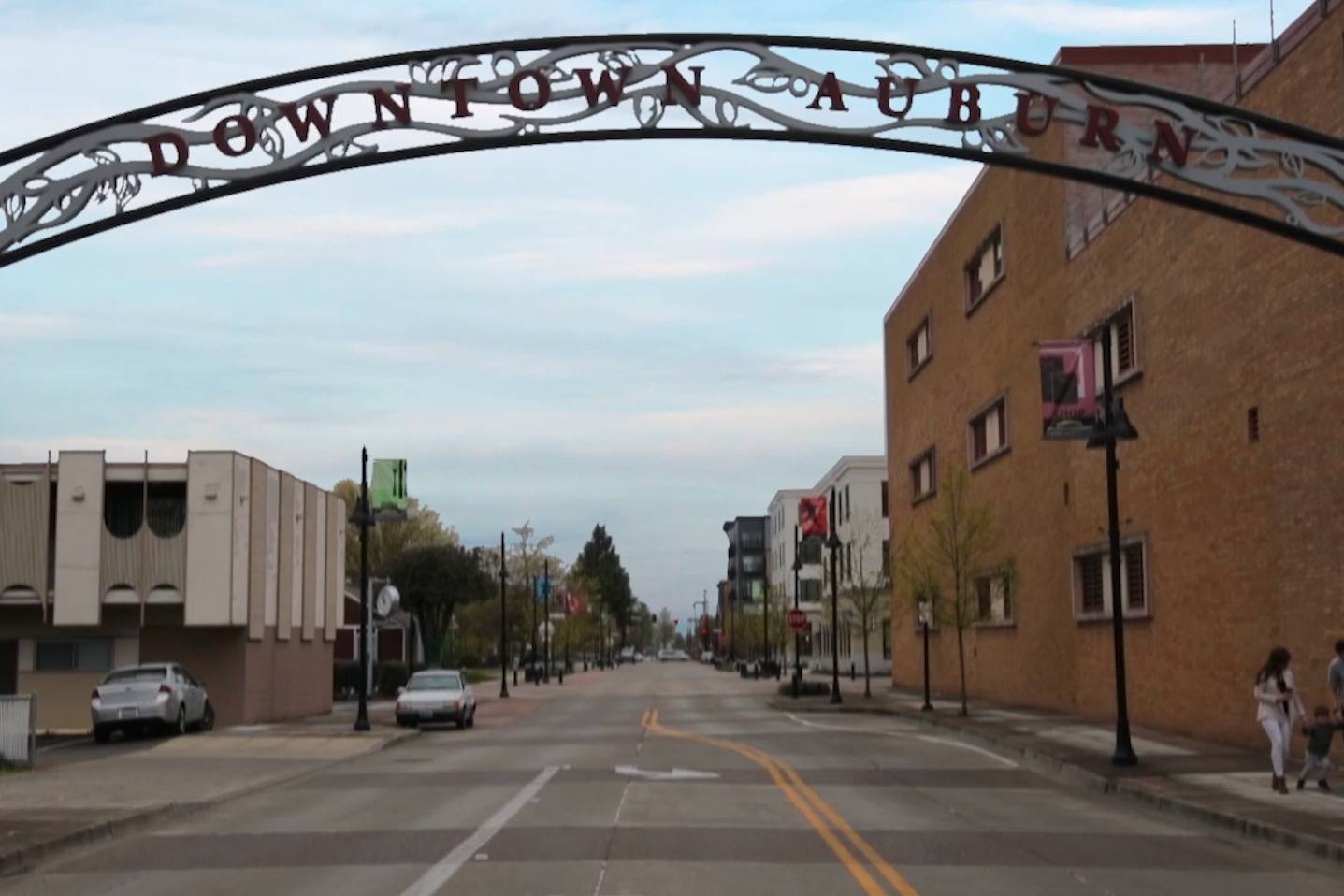The Auburn City Council approved the city’s first ever Business and Occupation Tax during its regular meeting May 17.
The tally was 5-2, with Councilmembers Bob Baggett Larry Brown, James Jeyaraj, Robyn Mulenga and Chris Stearns voting for the ordinance, and Deputy Mayor Claude DaCorsi and Councilmember Yolanda Trout-Manuel voting against it.
Since March, Auburn’s leaders have been discussing various scenarios to keep the city’s expenditures from overtaking its revenues and painting the books red. Berk Consultants predicted in a 2020 study that this would begin to happen by 2023 — with the rift growing ever wider thereafter.
Without council action, that is.
Councilmember Bob Baggett said that the council had studied all the options available to be as fair as possible to large and small businesses. But by now, the city has exhausted most of the avenues, he said, and if the city doesn’t start raising new revenue now, it’s going to be in poor shape starting in 2023 and beyond.
“Our city is in a growth mode, and we have to make up that revenue,” Baggett said. “Nobody hates taxes any more than I do. I am a taxpayer in this city like everyone else on the council and many staff, but there are very few revenue sources available to us … so we really need to make up the deficit we are going to be facing in the coming years.”
“I believe we have to start somewhere, and this is a good place to start,” said Jeyaraj. “If we don’t do anything about it, we may end up going into the red, and that won’t be good for our city.”
DaCorsi and Trout-Manuel, while not objecting to the substance of the ordinance, argued that now is not the time to implement such a tax, not with the business community still reeling from the pandemic and facing so much uncertainty in the coming years as it tries to claw its way back.
DaCorsi added a cautionary note to Gov. Jay Inslee’s sunny statement about perhaps fully reopening the state by June 30, given the growing number of fully vaccinated people and positive numbers.
“That does not mean that businesses automatically flip a switch and it becomes business as usual like it was prior to the pandemic shutdown when restrictions were put in place,” said DaCorsi.
Most of Auburn’s business community is represented by the Auburn Area Chamber of Commerce, which has not supported the ordinance from the beginning, and that has not significantly changed, DaCorsi said, noting that many businesses have reported two years or more could pass before they make up their losses or fully recover from the pandemic.
Not even with all those government and city grants that have helped so many of those businesses survive.
“We’re starting to experience rising prices for consumer goods that in some cases reflect double-digit percentage increases,” DaCorsi said. “They also report experiencing a labor shortage with the reopening plan as people have not committed to returning to work yet, and others may not come back to work until their unemployment benefits run out, and others may have other employment decisions to make.”
And who knows how much disposable income consumers will have to spend in those businesses in the next few years, DaCorsi asked.
Trout-Manuel agreed.
“I don’t feel it’s the right time for us to do this right now because we don’t really know what’s going to happen,” said Trout-Manuel, adding that no one knows for certain if COVID-19 is completely over and whether businesses will in fact be able to open fully by the end of June.
“I know this is difficult and nobody wants to be taxed,” Brown said. “But the fact is that as a civil society, a society that funds libraries and schools and roads, we have to tax ourselves to make that happen … I just believe that now is the time to step up and invest in our community to make sure we can afford for police to be on the street, that we can afford to make sure we can repair homes for people that are in unfortunate financial situations, that we can make sure that we can continue to support the social services that our community needs,” Brown said.
Here is what the council approved Monday night.
A built-in threshold directs that the gross receipts tax will apply only to businesses whose gross receipts per year total $500,000 in revenue or more, but exempts any businesses that fall below that threshold, city financial director Jamie Thomas said.
The gross receipts tax assumes a variable rate structure ranging from:
■ A half of 1 percent B&O tax for the retail sector;
■ 0.15 percent for the services sector;
■ 0.1 percent for the manufacturing sector; and
■ 0.18 percent for the wholesale sector.
As for the square footage tax, the ordinance assumes a 10-cent-per-square-foot tax per economic quarter for warehousing businesses with a total of more than 4,000 square feet of space.
The ordinance includes the same tax credits city leaders have been discussing since they began the process. For instance, it gives each new business a $1,000 tax credit per employee as long as the business brings at least 20 employees into the city.
As for exemptions and deductions, it offers a deduction that applies to alternative fuel and hybrid-vehicle sales.
The way that works, Thomas said, is that a car dealership that meets the threshold for the B&O tax could deduct from its total gross income the value of a new vehicle worth $45,000 or a used vehicle worth $30,000 to encourage the sale of clean-fuel-burning vehicles.
Employing similar language other cities are using throughout the region, another exemption recognizes the valuable services that non-profit hospitals and non-profit health care providers offer city residents, although such hospitals or health care centers are typically either uncompensated or undercompensated by either Social Security or disability payments.
The new taxes go into effect on Jan. 1, 2022.


